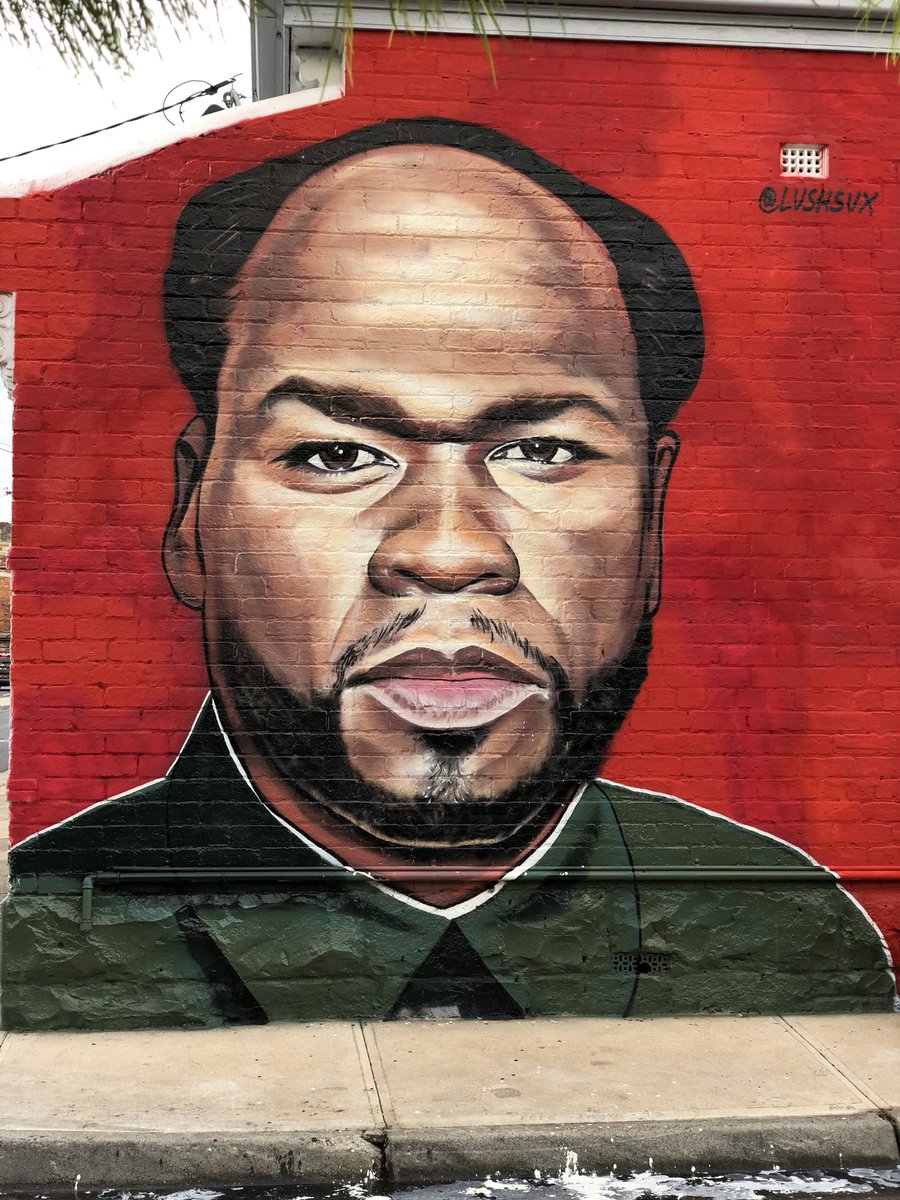Domino Effect
The West has Fallen and the East Stands Tall
----
"From Copenhagen in the North to Genoa in the Ligurian a steel curtain has descended across the continent."
- Konrad Adenauer, Former Chancellor of Germany
"Madame Ferraro, tear down this wall!"
- Andrei Gromyko, President of the Russian Federation
----
The story of the Twentieth Century begins with a tale of two revolutions.The West has Fallen and the East Stands Tall
----
"From Copenhagen in the North to Genoa in the Ligurian a steel curtain has descended across the continent."
- Konrad Adenauer, Former Chancellor of Germany
"Madame Ferraro, tear down this wall!"
- Andrei Gromyko, President of the Russian Federation
----
The United States of America prided itself on its ideals, its beliefs that all men were created equal and that anyone could make it to the top with enough grit and gumption. Unfortunately, though these concepts held partly true, they weren't adhered to as much as one would like. The Gilded Age was a time of great injustice, as monopolizing moguls with endless streams of gold seized control of America's economy and the average peasant's life descended further into squalor. Though the Civil War, fought over the enslavement of blacks, was but thirty years old, it seemed the lessons it had taught were already forgotten, as tensions rose between white and black. Democracy itself had been weaponized against the people, as political machines methodically dismantled the very system that had brought them in power and as Congress devolved into nothing more than a millionaire's club. People wanted change, they wanted reform, but no such thing came. After the assassination of Theodore Roosevelt at his presidential inauguration in 1912, the first truly progressive candidate America had seen since Grant, and with him, the country, were lost.
The Russian Empire was a mess. Ethnic conflagrations rocked the country, the government's authority was degrading, and though serfdom was decades dead by that point, the lasting effects of that most unjust institution could easily be seen in Russian society even then. The people, the citizens, demanded change, but the tsar remained in his palace, counting his billions and shielding himself from the world outside those walls.
In 1914, a man was shot in the head. But this was not just any man. This was German Kaiser Wilhelm II, shot by a French nationalist while on a visit to the border territory of Elsass-Lothringen. Though the German people mourned and Kaiser Wilhelm III was crowned, they were soon enraged, and war was declared on the French Republic. Things spiraled out of control. Alliances were forged and broken. Tsar Nikolai II balked at the audacity of the French to defend someone who had slaughtered royalty, and severed his ties with them, realigning his views with Germany. At the same time, when Britain and the Benelux announced their support for the French, the Italians, Spaniards, and Portuguese were swift to jump to their defense, and Austria-Hungary, classically neutral, was coaxed into engaging in a suicide mission against the twin titans of Germany and Russia. In America, Roosevelt's vice president of fifteen minutes Woodrow Wilson, who had only been selected to show a solidarity between the progressives to the conservatives, had turned rabidly Anglophobic in his imperialist quest and, against his population's better wishes, declared war on the Entente Powers. By the next day, soldiers were already streaming across the border and into Canada.
The Great War was not kind to any side, as trenches and earthworks became the graves of millions of young men the world over. Some nations were better equipped to handle such a blow, such as the persevering Germans or the radical French, but America and Russia were soon in dire straits. The war in Canada had not gone as smoothly as Wilson had desired--indeed, nothing like the "mere matter of marching" Thomas Jefferson had predicted--and the demonstrations in Washington protesting the government and the conflict grew daily. Russia, meanwhile, was under pressure fighting a war on three fronts, as the Austro-Hungarians turned out to be more trouble than thought possible, as the British invaded Central Asia, and as the Japanese swallowed Siberia. Labor struggles were, however, quickly addressed, as the war effort demanded Russian industry work like never before. The same could not be said in the United States, where strikes and their breaking up by police and strongmen became a daily occurrence.
Things finally came to a head in 1917. The governments of Russia, overextending itself, and America, bogged down in Canada, were overthrown. In Petrograd, the tsar and his family were removed from the Winter Palace by revolutionaries and sent into exile in London, before civil war erupted between the democratic and autocratic factions. In Washington, D.C., a horde of livid men and women marched into the White House, dragged Woodrow Wilson and his wife to the foot of the Lincoln Memorial, and brutally executed them. Wilson's liberated head would remain on a pike in the center of the National Mall for months. Both nations became consumed by revolution and infighting, though America was far worse off than Russia, as all order dissolved and chaos ensued. Still, in both countries, two men and their ideologies would rise to the top. In the United States, this was the aging communist Eugene V. Debs, a man who had been imprisoned by Wilson for his radicalism but freed by rebels when the revolution came to Chicago. Debs united the various socialist, anarchist, syndicalist, and communist factions in the Union under his banner, and against all odds defeated the Whites and established the United Socialist States of America in 1918, with its capital in Revolution, the name that had rechristened New York City. Across the seas, one Alexander Kerensky became the angel of democracy for the Russian people, stabilizing the country and installing a new government with free and fair elections and a relaxed grip on the populace. Debs and Kerensky both pulled out of the Great War, though Germany, who by that point had conquered Austria-Hungary, broken France, and enticed Italy to its side easily won the day.
The 1920s were a time of great social upheaval in the USSA and the Russian Federation. The former saw the consolidation of power by Debs, and later his death, which resulted in the paranoid, powerful, and tyrannical Franklin Delano Roosevelt rising to power after ejecting his rival, Herbert Hoover, and later having him assassinated in Beijing, where he had sought refuge. Roosevelt initiated the Great Purge soon after, citing the need to eliminate the enemies of the working class that lay hidden in America, and went on to falsely accuse tens of thousands of people of crimes they did not commit, usually resulting in their death. The People's Bureau of Investigation under J. Edgar Hoover was FDR's main strongarm when it came to cracking down, as was the People's Army of the Revolution under Dwight D. Eisenhower. Russia was undergoing the exact opposite, as democracy and regulated capitalism showed just how fruitful the nation could be. The Roaring Twenties soon passed over the Russians, as economic prosperity reigned across Europe. But it was not to be. When the Berlin Stock Market Crash occurred in 1929, the world was plunged into the utter devastation of the Great Depression.
The Depression was a trying time, straining Russia's new democratic systems, though they held true to the end. The Americans, who had been cut off from the global economy since 1919, were unfazed by the Depression and instead began to export their most powerful commodity: Revolution. Latin America struggled under the weight of the panic, so much so that communism looked very appealing to the average citizen. Harnessing this sentiment, the United Socialist States of America began its decades-long crusade against capitalism by invading nations like Mexico, Colombia, Venezuela, and Brazil to bring the Revolution to them. By the end of the 1930s, communism reigned supreme in the Americas in everywhere but Canada and the Cone. Russia, in stark contrast, turned isolationist, looking inward and rebuking a place on the global stage. During this time, a new, reform-minded president was elected, one Joseph Stalin, whose astoundingly popular New Deal alleviated some of the weight of the downturn.
Eventually, the Great Depression came to an end, but not with a whimper, but a bang. The Entente Powers, losers of the Great War, had been festering over the course of the 1930s, and the right-wing had arisen in their governments, most notably Oswald Mosley in the British Imperial Union and Philippe Pétain in the French State. On October 31, 1939 France began its invasion of Germany. Thus began the World War, a conflict of far greater magnitude than any that had come before it. The Entente swept across Europe, though Russia slumbered. The USSA was invaded through New England, and was soon engaged in the fight for its life, but still, Russia slept on. Finally, when the Empire of Japan launched a surprise bombing raid over Vladivostok, Stalin's Russian bear awoke. With the might of both the American and Russian juggernauts on their side, the Axis Powers soon defeated the Entente through the German's offensive through the Rhineland and on the part of Operation Flood and Operation Downfall for the Americans, who conquered Western Europe in one blow and Japan with the second. All was not well, however, and before the dust had settled and the ink had even dried on the treaties and peace accords, the Axis split in two: the communist sphere, and the "free world." The Cold War had begun.
The Russians and Germans had developed the nuclear bomb first, and it had been dropped on Algiers as a show of power to persuade the French to surrender, something it certainly contributed to. But the Americans, through spy rings and double agents, had developed their own atom bombs as well. Diametrically opposed, the world was divided with Europe split in two, communist to the west and democratic to the east. As technology developed, things became scarier and scarier. The Paris Blockade of 1949 characterized what the next few decades would be like, when the USSA refused to allow EURASEC, the new Eurasian military alliance, into East Paris, and Russia instead merely airlifted in supplies. The American Counter-Revolution of the 1950s, led by Joseph McCarthy and Barry Goldwater against Premier Lyndon B. Johnson, was an utter failure, but Russian support for the rebels heightened tensions immeasurably. By the 1960s, when the Japanese Missile Crisis became inflamed, mutually assured destruction--the doctrine of M.A.D.--was the only thing that kept anyone from pressing the big red button, though the Russian's failed Bay of Mutsu invasion was an international embarrassment in EURASEC's fight against the Dubhlinn Pact. Proxy wars and rebellions became the battlegrounds in which the two sides went head to head, most infamously the Bolivarian War, which ended up being a horrific quagmire for the Russian Federation.
In 1985, a new American premier rose to power: Geraldine Ferraro. For the first time since Abraham Lincoln, an American politician was dedicated to democracy. Much to the chagrin of the People's Congress, Ferraro has, in recent years, moved to reform the USSA, something wildly popular Russian President Andrei Gromyko has urged. But how far can reform go before people taste too much liberty? How free can a totalitarian state become and still remain together? Already, the screws are loosening and the seams are bursting. Perhaps the dream of democracy in the West is not so fleeting after all...

Last edited:



